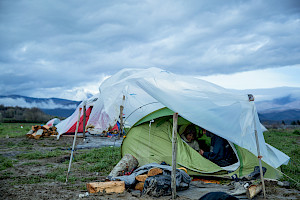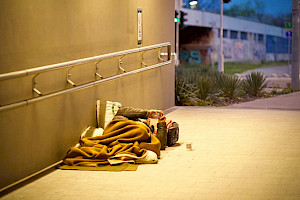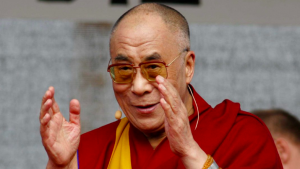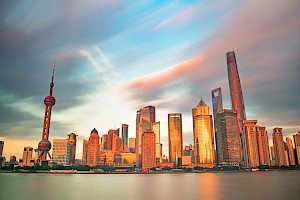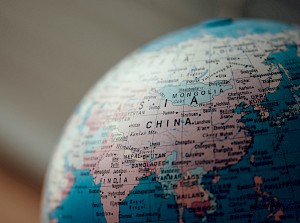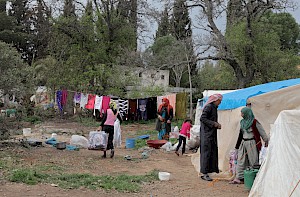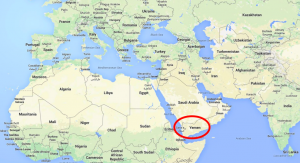A Case For Peace
October 29, 2020“World peace, like community peace, does not require that each man love his neighbour — it requires only that they live together with mutual tolerance, submitting their disputes to a just and peaceful settlement.“ — John F. Kennedy
“If you want peace, you don’t talk to your friends. You talk to your enemies“. — Desmond Tutu
We have come to believe that war is inevitable, like death, taxes and the evening news. So here’s what’s on the other channel: Deadly conflict can be both prevented and resolved.
Most of the western world has acquiesced to the fact that deadly conflict has always been and always will be an inescapable feature of the human condition, especially if those conflicts are in faraway places. At times, it feels like the only groups left advocating for world peace are John Lennon fans and beauty pageant contestants.
But apathy is the opposite of what we need today. Deadly conflict is on the rise. Over the past decade, the number of active conflicts worldwide has grown by nearly 50 per cent. Violence forced almost 75 million people to flee their homes in 2018 alone, and in the following year, war caused economic losses exceeding $500 billion.
This is happening against the backdrop of the return of great power rivalries. Authoritarianism and polarization are on the rise. Multilateralism is in retreat. All this is taking a human toll by way of new threats: emboldened jihadists and criminal gangs, climate change, cyber-warfare and, to top it off, the coronavirus pandemic. Additionally, we are seeing evidence that inflicting misery has become a political strategy.
Government forces and armed groups compete for power by targeting civilians, inflicting starvation upon men, women and children, and destroying infrastructure even at the cost of unleashing deadly diseases.
Instances of weaponizing misery using siege warfare are meant to starve and exhaust the enemy. Two years ago a Saudi-led coalition wanted to squeeze the Houthi rebels in Yemen into submission. But its tactics — chiefly a blockade but also the bombing of cities and villages, or school buses — caused systematic and fatal harm to civilians in its enemy’s territory.
If the Red Sea port of Hodeida is a microcosm of Yemen, then Yemen, in turn, is a microcosm of an increasingly prevalent mode of warfare that uses misery as a strategy. We have seen other examples in Syria, South Sudan and Myanmar.
The first and most important victims of conflict are always the civilians caught in harm’s way. Around the globe, war is causing human anguish on a scale unseen in a generation.
Over the past 15 years, I have seen first-hand that deadly conflict is often preventable and resolvable. I have been a board member and am now the co-chair of the International Crisis Group and I have seen how our work gets results. We have a unique approach to conflict resolution. First, we gather crucial information from all sides and deliver impartial, field-based insights (at times in the middle of war zones) to wherever decisions are being made — whether in an insurgent’s home, a refugee camp or a prime minister’s office. We then open channels of communication and find innovative solutions, and have proved often that de-escalation, diplomacy and negotiated outcomes are feasible. If necessary, we don’t shy away from running intensive media and advocacy campaigns on the conflicts that produce the greatest suffering.
In 2018, Crisis Group campaigned for UN-led efforts to prevent a battle for the Red Sea port of Hodeida in Yemen. Our researchers assessed that, if allowed to continue, a battle for the port and neighbouring city between the Houthi rebels and pro-government forces could rage on for months. If it did, it would choke off trade and aid entering Houthi-held areas, home to about two thirds of Yemen’s 29 million people, likely sparking a famine. Crisis Group’s work wasn’t popular with many in the anti-Houthi coalition, including Saudi Arabia, the United Arab Emirates and others, who argued that taking the port would force the Houthis into making the political and military concessions needed to end the war. But the campaign helped raise the issue to the highest levels in the UN and in Washington. In December 2018, the UN brokered a truce around Hodeida that holds to this day. The outcome wasn’t perfect but it helped avert a deepening of what is already the world’s largest humanitarian crisis.
In Colombia, Crisis Group supported and advocated for a landmark 2016 peace accord between the state and the leftist guerrilla movement, the Revolutionary Armed Forces of Colombia (FARC). In the years that have followed, Crisis Group has acted as an early warning system, flagging challenges in implementing the accord and consolidating security. Our ability to understand armed group dynamics — and their impact on civilian communities — renders Crisis Group’s expertise unique and sought-after.
Our organization is a unique group of former officials, researchers, analysts, activists, academics and journalists, representing some 40 nationalities and backed by a board of former heads of state and other dignitaries. In a world where budget cuts in government and media limit the flow of real-time information and communication, Crisis Group has acted as a de facto adviser for marginalized countries and foreign ministry for unrepresented peoples and parties. As the UN becomes ever more dysfunctional, we see ourselves as one of the only viable political “first responders” to conflict. Our independence and impartiality remain our most cherished qualities. We talk to all sides and our recommendations are taken seriously.
Saving countless lives is a worthy goal. Our impact may sometimes be hard to quantify, which makes funding our work challenging at times. Our work has never been easy and it’s getting harder all the time. But I believe it’s well worth the effort for two simple reasons:
We can stop and prevent war, and peace is worth fighting for.
Originally published in the Vancouver Sun


